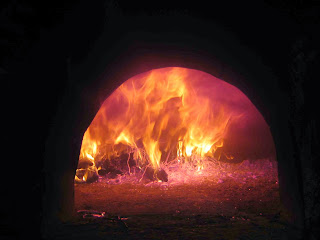Are you looking for me?
I am in the next seat.
My shoulder is against yours.
you will not find me in the stupas,
not in Indian shrine rooms,
nor in synagogues,
nor in cathedrals:
not in masses,
nor kirtans,
not in legs winding around your own neck,
nor in eating nothing but vegetables.
When you really look for me,
you will see me instantly —
you will find me in the tiniest house of time.
Kabir says: Student, tell me, what is God?
He is the breath inside the breath.
— Kabir
We are students of words: we are shut up in schools, and colleges, and recitation-rooms, for ten or fifteen years, and come out at last with a bag of wind, a memory of words, and do not know a thing.
—Henry Thoureau
—Henry Thoureau
A scholar tries to learn something everyday; a student of Buddhism tries to unlearn something daily.
— Alan Wilson Watts
True teachers are those who use themselves as bridges over which they invite their students to cross; then, having facilitated their crossing, joyfully collapse, encouraging them to create their own.
Most schools have a loud system of loud bells, which startle the students and teachers at regular intervals and remind them that time is passing even more slowly than it seems.
I don't believe in colleges and universities. I believe in libraries because most students don't have any money. When I graduated from high school, it was during the Depression and we had no money. I couldn't go to college, so I went to the library three days a week for 10 years.
When the student is ready, the teacher will appear.
Student: Dr. Einstein, Aren't these the same questions as last year's [physics] final exam?
Dr. Einstein: Yes; But this year the answers are different.
Live as if you were to die tomorrow. Learn as if you were to live forever.
– Gandhi
Tell me and I forget, teach me and I may remember, involve me and I learn.
― Benjamin Franklin
― Benjamin Franklin
Study hard what interests you the most in the most undisciplined, irreverent and original manner possible.
― Richard P. Feynman
― Richard P. Feynman
The more I read, the more I acquire, the more certain I am that I know nothing.
― Voltaire
― Voltaire
That is what learning is. You suddenly understand something you've understood all your life, but in a new way.
― Doris Lessing
― Doris Lessing
There is creative reading as well as creative writing.
― Ralph Waldo Emerson
― Ralph Waldo Emerson
For the things we have to learn before we can do them, we learn by doing them.
—Aristotle
The knowledge of all things is possible
― Leonardo da Vinci
― Leonardo da Vinci
We are all failures- at least the best of us are.
―
J.M. Barrie
It is, in fact, nothing short of a miracle that the modern methods of
instruction have not yet entirely strangled the holy curiosity of
inquiry; for this delicate little plant, aside from stimulation, stands
mainly in need of freedom. Without this it goes to wrack and ruin
without fail.
― Albert Einstein
― Albert Einstein
Education is the kindling of a flame, not the filling of a vessel.
― Socrates
― Socrates
The expert knows more and more about less and less until he knows everything about nothing.
―
Mahatma Gandhi



















































